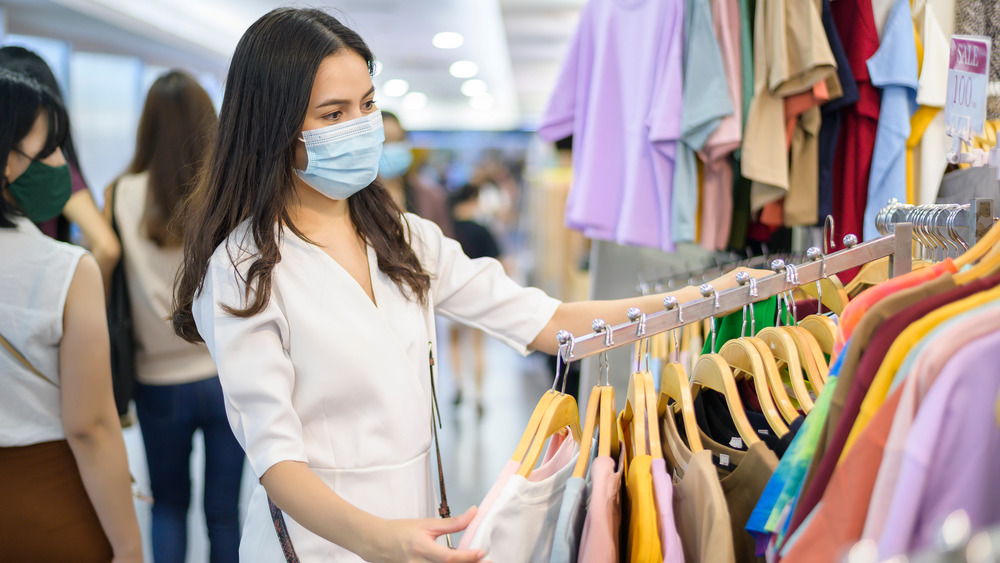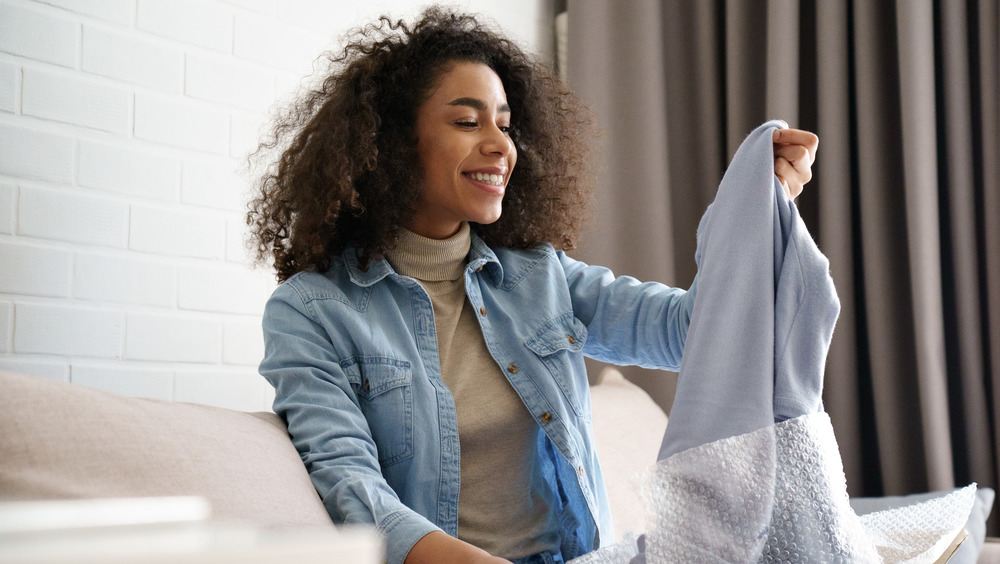The Expensive Clothing Brand Most Women Would Buy If They Were Rich
Plenty of women and men love shopping at local stores or nearby malls. However, most of us are usually shopping with a budget in place — we might have some wiggle room, but probably not by too much. In fact, our budgets typically dictate the types of clothing and the brands we buy. But what if you could buy any brand of clothing you wanted?
The List surveyed 574 women in the United States and asked one question: if money was no object, what designer label would you buy?
It turns out the women definitely had answers! Chanel is at the top of the list, with 34% (197) of respondents citing the fashion house as their top choice. The House of Chanel was founded in 1909 by Gabrielle Chanel, who opened a hat and headwear shop on the ground floor of a building owned by her boyfriend in Paris. The shop allowed Gabrielle, who was known by her nickname Coco, to earn an independent living.
In this 1969 interview shared on YouTube, Coco Chanel praised her clients to interviewer Micheline Sandrel. "I've got a really, really beautiful clientèle. This is the only thing I'm truly proud of. I'm convinced there isn't a house in France with a clientèle like mine."
What other brands would women buy if they could?
Chanel is not the only fashion brand that women would love to buy if they could! Gucci clocked in as the second choice women would shop for, with 29% (171) of women choosing the label. Other answers include Saint Laurent, Dior, Commes des garcons, and there were plenty of options in the "other" category, where many women indicated that they would splurge on Ralph Lauren products if they could.
While the designers mentioned all create beautiful clothing, many experts point out that aspiring to buy clothing simply because of the name on the label might not be the best way to move through this world. The Guardian reported on a psychological condition known as "fashion imposter syndrome" where wearers of high-end fashion buy expensive clothing to boost their confidence, but sometimes experience the opposite effect.
The publication explains that "consumers can end up less confident than they would be if they had gone out wearing non-luxury clothes" and that the condition even applies to non-apparel items, as "the study found that even expensive items used in private, such as skincare products and makeup, could bring on FIS." Perhaps everyone would benefit from sticking to a budget regardless of their financial situation, real or imaginary!

